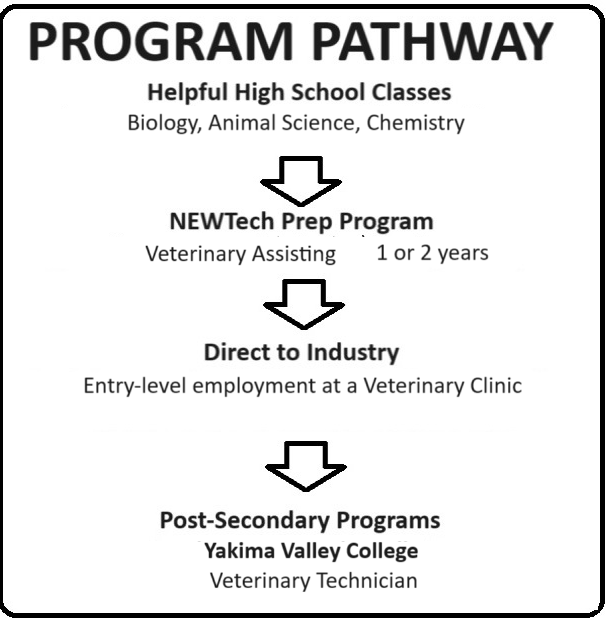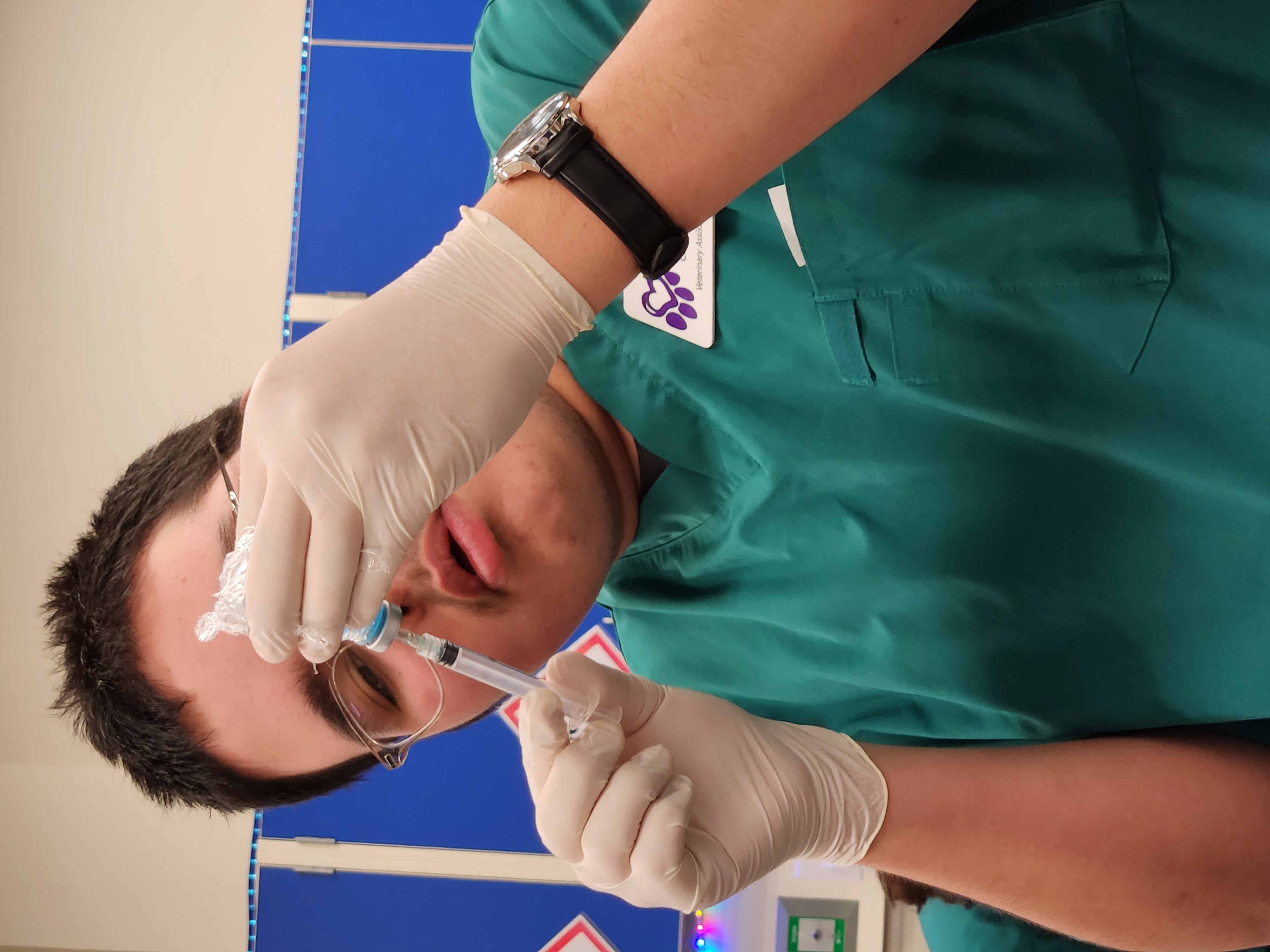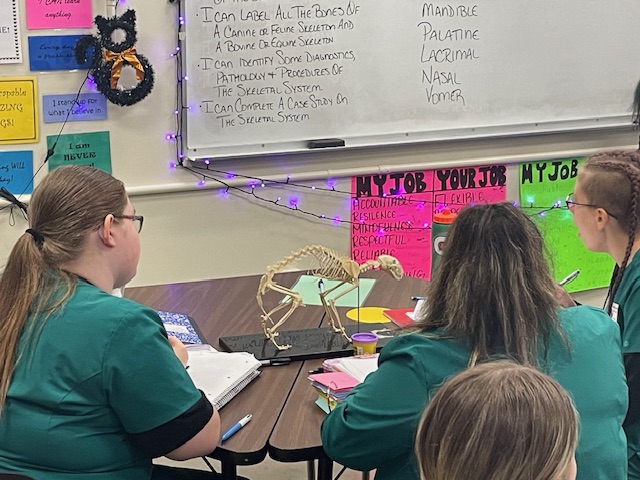- NEWTech
- Health Sciences
-
Description:
The primary focus of this course is to prepare students to enter the vast career field of veterinary medicine; to pursue further education to become a Licensed Veterinary Technician or a Veterinarian; or to become an exceptional pet owner. This course will include both instructional and practical applications of skills and concepts.
IN THIS PROGRAM YOU WILL:
- Experience the reward of caring for live animals.
- Work side-by-side with certified professionals in the delivery of quality animal health care services.
- Explore the science of veterinary medicine including animal anatomy and physiology, animal control, grooming, clinical procedures, terminology, and disease prevention.
Credits:
Any combination equal to 3.0 credits (1.5 max per semester)
1.0 Anatomy and Physiology (.5 max per semester)
3.0 Occupational or General Elective (1.5 max per semester)Certification Opportunities: (* indicates a test fee applies)
- HIV Bloodborne pathogens
- CPR (human)
- FEMA certifications
- Hill’s VNA certification
- iCEV Elanco Veterinary Medical Applications (year one)
- iCEV Elanco Fundamentals of Animal Science (year two)
College Credits Available:
Spokane Community College
SURG 105 Blood-borne Pathogens and HIV/AIDS (1 credit)Required Supplies
- 300 index cards (3”x 5”) à year one students
- Composition book
- 3” Binder
- Notebook paper or spiral notebook 200 pages+
- Pencil, eraser, blue or black ink pen
- Basic calculator (no graphing abilities needed)
- Each student must have a watch with a second hand or a digital watch that shows seconds but no smart watches. Watches will be required once we begin working with animals consistently.
- Shoes must have a closed toe; a moisture/slip resistant sole is preferred. Black or dark shoes are better than white in veterinary medicine. Cowboy boots, heels, Doc Martens, boots, or Uggs are not appropriate footwear.
Instructor: Kimberly Coleman KimberlyC@spokaneschools.org





- Experience the reward of caring for live animals.


